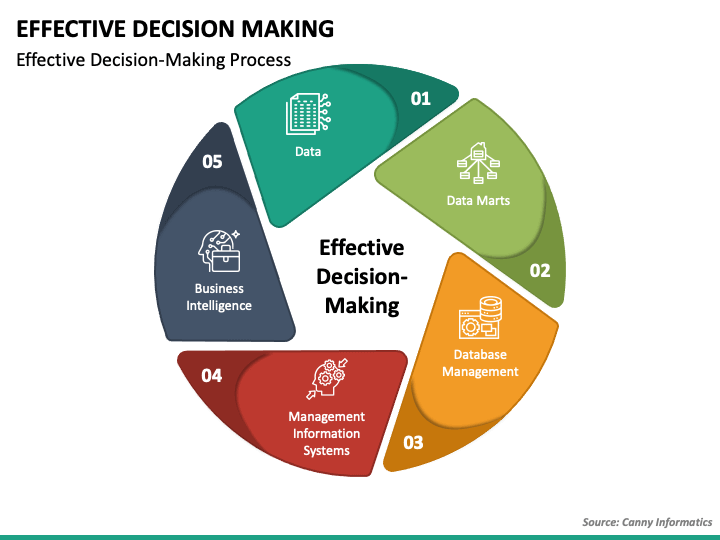Here you can find the fundamental 10 skill sets to develop even in 2024 and beyond which are considered basic skills for any professional or personal efficiency. In a rapidly evolving world, where technology and industries transform in the blink of an eye, staying ahead demands a commitment to lifelong learning. As we step into 2024 and beyond, the landscape of skills required for personal and professional success continues to shift. This blog dives deep into the heart of the matter, presenting the essential 10 skill sets that aren’t just vital for today, but will also shape the future. From mastering cutting-edge technologies to honing timeless interpersonal abilities, we unveil the keys to thriving in an ever-changing world.
Table of Contents
Effective Decision-Making as a Fundamental Skill
Effective decision-making is the invaluable ability to assess situations, options, and potential outcomes with precision and clarity. This skill set involves analyzing information, weighing pros and cons, and arriving at choices that align with your objectives and values.

Importance: In a fast-paced world inundated with choices, honing this skill empowers you to tackle challenges, seize opportunities, and confidently navigate the uncertain terrain of life and work.
Real-Life Application: From selecting the right investment to choosing a career direction, proficient decision-making plays a pivotal role. Leadership roles drive impactful choices that shape the course of organizations.
How to Develop: Strengthen your decision-making prowess by cultivating a habit of gathering relevant data, considering both short-term and long-term consequences, seeking counsel from knowledgeable individuals, and learning from previous experiences. Regularly reflecting on past decisions and their outcomes contributes to continuous improvement in this skill.
Critical Thinking & Analytical Skills
Critical thinking and analytical skill sets form the bedrock of informed decision-making. These skills involve meticulously examining information, ideas, and situations to uncover deeper insights and draw well-reasoned conclusions. In a world filled with diverse perspectives and data, cultivating these skills empowers you to sift through complexities and arrive at objective judgments.
Importance: These basic skills are indispensable in problem-solving scenarios. They enable you to assess problems from multiple angles, dissect intricate challenges, and synthesize diverse information into coherent solutions.
Real-Life Application: From evaluating news sources for credibility to dissecting business trends, critical thinking and analytical skills guide effective problem-solving. They’re particularly crucial in professions like law, science, and data analysis.
How to Develop: Sharpen critical thinking by questioning assumptions, seeking evidence, and considering alternative viewpoints. Analytical skills can be honed by breaking down complex issues into manageable components, using data to support your conclusions, and continuously challenging yourself to think deeper. Engaging in discussions, debating ideas, and solving puzzles can also help exercise and strengthen these skills. Remember, practice is key to refining your critical thinking and analytical prowess.
Problem Identifying and Solving Skill Sets
Problem-identifying and solving skills are the ability to recognize challenges, analyze them thoroughly, and develop effective solutions. This skill involves keen observation, critical thinking, and resourcefulness to address various issues that arise.
Importance: In both personal and professional spheres, these skills enable you to overcome obstacles and drive improvements. They enhance your capacity to handle complexities with confidence and precision.
Real-Life Application: From troubleshooting technical glitches to addressing interpersonal conflicts, problem-identifying and solving skills are fundamental. They are vital in fields such as engineering, customer service, and project management.
How to Develop: Begin by practising active observation and questioning. Break down problems into smaller components for easier analysis. Enhance your critical thinking through puzzles, brainstorming sessions, and engaging with diverse perspectives. Regularly exercise your problem-solving muscles by tackling challenges in your areas of interest. As you build experience, your ability to identify and solve problems will naturally grow.
Effective & Business Communication Skill
Effective business communication skills encompass the art of conveying ideas clearly, persuasively, and professionally. It involves mastering verbal, written, and nonverbal communication to foster understanding and collaboration.
Importance: These basic skill sets are the cornerstone of success in the professional world. Clear communication builds strong relationships, resolves conflicts, and facilitates efficient teamwork.
Real-Life Application: From delivering impactful presentations to crafting persuasive emails, effective communication is essential across all industries. Business negotiations, client interactions, and leadership roles heavily rely on these skills.
How to Develop: Start by honing your listening skills, and paying attention to both verbal and nonverbal cues. Practice articulating your thoughts concisely and adapting your communication style to different audiences. Improve your written communication through regular writing exercises and seeking constructive feedback. Public speaking classes, workshops, and networking events can help you gain confidence and polish your communication abilities. Consistent practice and seeking opportunities for communication growth are key to mastering this skill.
Negotiation and Closing Skill Sets
Negotiation and closing skills involve the art of reaching mutually beneficial agreements and successfully finalizing deals. It’s about finding common ground, persuading effectively, and sealing agreements that satisfy all parties involved.
Importance: These basic skills are paramount in business and personal interactions. They facilitate win-win outcomes, build trust, and enhance your ability to achieve favourable terms.
Real-Life Application: From negotiating contracts and salary packages to securing partnerships, negotiation and closing skills are integral to every stage of deal-making. Salespeople, entrepreneurs, and even parents employ these skills to navigate discussions and secure positive results.
How to Develop: Begin by understanding your own goals and priorities, as well as those of the other party. Practice active listening to comprehend their needs and concerns. Hone your persuasive abilities by highlighting benefits and crafting compelling arguments. Learn from experienced negotiators, attend negotiation workshops, and engage in role-play scenarios to refine your skills. The more you engage in negotiations, the better you’ll become at achieving successful outcomes.
Teamwork & Group Leading Skill
Teamwork and group-leading skills involve collaborating seamlessly with others and effectively guiding a team towards a common goal. It’s about fostering cooperation, leveraging diverse strengths, and leading by example to achieve collective success.
Importance: These skills are essential for a harmonious work environment and optimal productivity. Strong teamwork and leadership create cohesive teams that can tackle complex challenges and deliver outstanding results.
Real-Life Application: From leading a project team to coordinating community initiatives, these skills shine in diverse contexts. Team managers, project leaders, and anyone involved in group dynamics benefit from mastering this skill.
How to Develop: Start by cultivating active listening and open communication. Understand team members’ strengths and weaknesses to assign tasks effectively. Lead by example, showing dedication, empathy, and integrity. Develop conflict resolution abilities to address disagreements constructively. Attend leadership workshops, practice delegation, and seek mentorship to refine your leadership skills. Remember, successful leaders empower others to shine.
Project and Overall Management Skill Sets
Project and overall management skills involve planning, executing, and overseeing tasks to achieve objectives efficiently. It’s about balancing resources, setting timelines, and ensuring projects are completed successfully.
Importance: These fundamental skills drive successful project outcomes, prevent resource wastage, and maintain organizational efficiency. Effective management ensures tasks are completed on time, within budget, and meet quality standards.
Real-Life Application: From organizing events to overseeing business operations, project and overall management skills are indispensable. Project managers, business owners, and operations directors rely on these skills to keep things running smoothly.
How to Develop: Learn to set clear goals and break projects into manageable phases. Utilize project management tools and techniques to track progress. Develop time management and delegation abilities to optimize resources. Enhance your communication skills to coordinate team efforts effectively. Continuously assess and learn from each project to refine your management approach.
Quick Learning and Adaptability Basic Skill
Quick learning and adaptability involve the ability to grasp new concepts rapidly and thrive in changing circumstances. It’s about staying open to new information, flexibly adjusting strategies, and embracing lifelong learning.
Importance: In a rapidly evolving world, these skills empower you to stay relevant and seize emerging opportunities. Quick learners and adaptable individuals are assets to any organization.
Real-Life Application: From mastering new software to navigating shifting market trends, quick learning and adaptability are crucial. Start-ups, professionals in dynamic industries, and students benefit from developing these skills.
How to Develop: Cultivate a growth mindset that embraces challenges as learning opportunities. Stay curious and seek out new experiences. Challenge yourself to step outside your comfort zone. Practice time management and focus techniques to make learning more efficient. Continuously update your knowledge through courses, workshops, and self-study. The more you expose yourself to new experiences, the better you’ll become at adapting.
Strategic Thinking and Organizing Skills
Strategic thinking and organizing skills involve planning for the future, setting goals, and devising effective strategies. It’s about analyzing the bigger picture, identifying priorities, and systematically working towards success.
Importance: These skills guide decision-making, resource allocation, and long-term planning. Strategic thinkers anticipate challenges and opportunities, positioning themselves for success.
Real-Life Application: From launching a business to managing personal finances, strategic thinking and organizing skills are invaluable. CEOs, entrepreneurs, and individuals making significant life choices rely on these skills.
How to Develop: Develop your analytical skills by evaluating situations from multiple angles. Set clear objectives and create actionable plans to achieve them. Continuously reassess and adjust your strategies as circumstances change. Study successful strategies in your field and apply those principles to your own endeavours. Seek mentorship from experienced strategic thinkers to refine your approach.
New Technology and Tools Usage Skill Sets
New technology and tools usage skills involve staying up-to-date with emerging technologies and harnessing tools to enhance efficiency and productivity. It’s about adapting to technological advancements and leveraging them for success.
Importance: In our tech-driven world, these skills ensure you remain competitive and relevant. Proficiency with new technologies opens doors to innovative solutions and increased productivity.
Real-Life Application: From using social media for marketing to mastering specialized software, new technology and tools usage skills are ubiquitous. Professionals across industries, particularly those in tech-related fields, benefit from acquiring and updating these skills.
How to Develop: Stay curious about emerging technologies by following industry news and attending tech conferences. Dedicate time to self-education and online courses to learn about new tools and software. Practice using new technologies in real-world scenarios to solidify your skills. Collaborate with tech-savvy peers and seek guidance from experts in the field to know and master your digital skills. Consistent practice and exploration are key to mastering new technology and tool usage skills.
In the grand tapestry of time, adaptation remains the constant thread. The 10 skill sets outlined here transcend trends; they are the cornerstones of resilience, innovation, and human connection. Embrace these skills, and you equip yourself not just for today’s challenges, but for the challenges yet to come. As the world continues to morph, remember that your commitment to growth will always be your most valuable asset. Start your journey toward a future of endless possibilities—embark on the path of mastering these fundamental skills today.



1 thought on “Fundamental 10 Skill Sets to Develop Even in 2024 and Beyond”